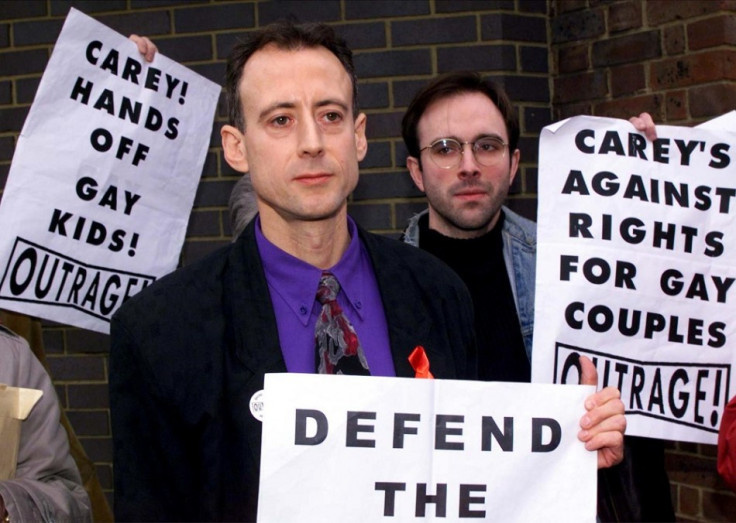Peter Tatchell Condemns India Gay Sex Ban as 'A Bleak Day for Equality' [VIDEO]

Gay rights leader Peter Tatchell has slammed an Indian court's decision to uphold a law that criminalises consensual gay sex.
"This is a very bleak day for gay equality in India," said Tatchell, Director of eponymous human rights organisation the Peter Tatchell Foundation.
"After a window of progress the Supreme Court has reversed the decriminalisation ordered by the High Court."
Religious groups welcomed the Supreme Court's judgment, while human rights and LGBT activists expressed outrage at the ruling.
Section 377 is a 153-year-old colonial law where a same-sex relationship is classed as an "unnatural offence" and can be punished with a 10-year jail term.
The law has been used sporadically, mainly to harass homosexuals as opposed to prosecuting anyone.
"It means that the British colonial era criminalization of homosexuality remains in force," Tatchell continued.
"It's absurd for 21st century India to maintain an anti-gay law that was imposed upon the nation by British imperialism in the 19th century."
'India has banned love'
Several other prominent activists condemned the court's decision after it was passed down.
Author Taslima Nasreen wrote on her twitter: "India banned love. Shame Shame!"
Arvind Narrain, a lawyer for the Alternative Law Forum gay rights group, stated: "Such a decision was totally unexpected from the top court. It is a black day."
It is now the Indian Parliament's prerogative to legislate on this issue, according to Justice GS Singhvi, the head of the Supreme Court bench.
Tatchell, 61, was selected as a prospective parliamentary candidate in Oxford East in 2007 before standing down in 2009 due to brain damage. He claims the damage was caused by Robert Mugabe's bodyguards as he tried to arrest the Zimbabwean leader, and by Russian neo-Nazis who attacked him during gay rights campaigns.
© Copyright IBTimes 2025. All rights reserved.






















